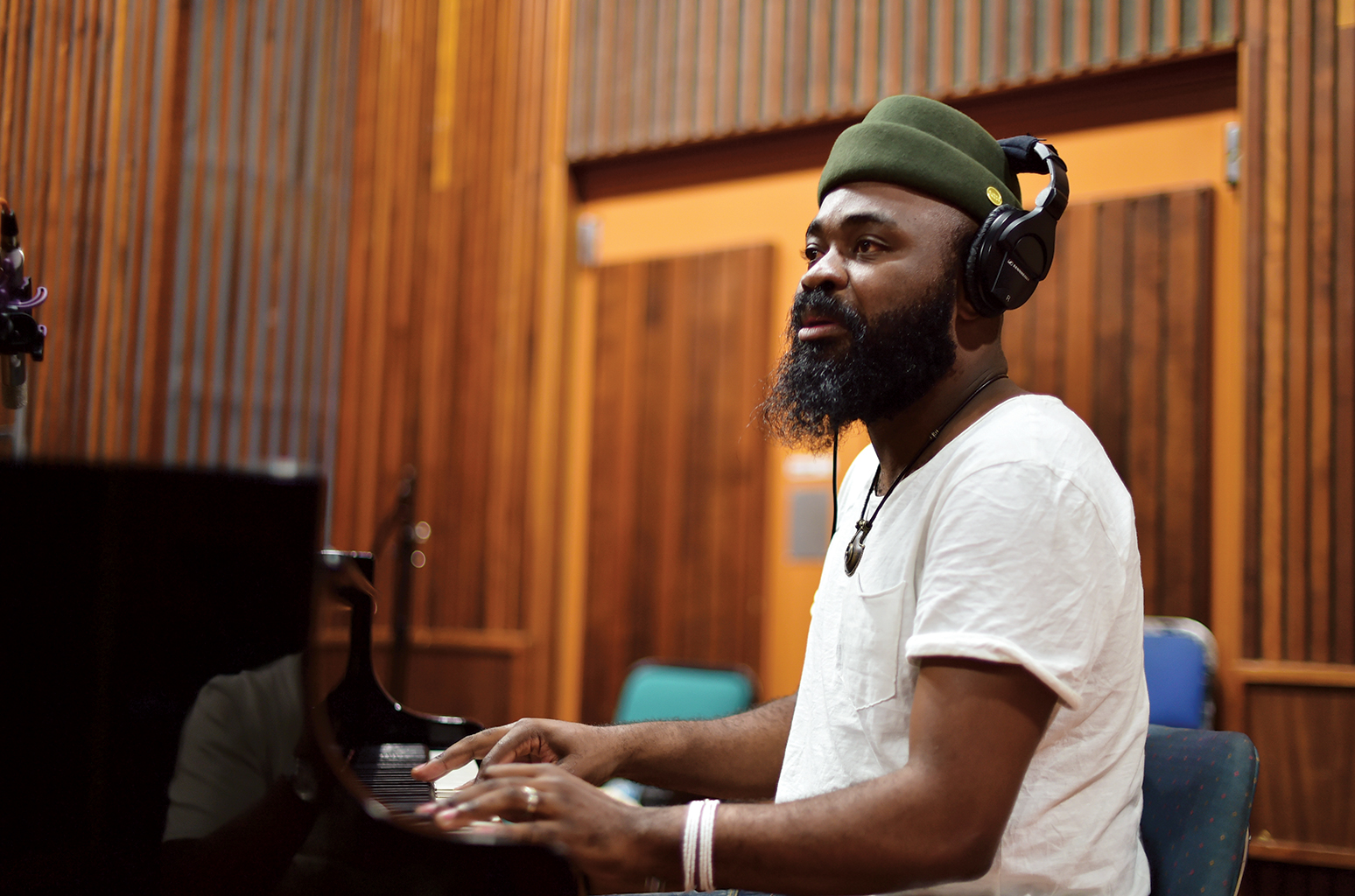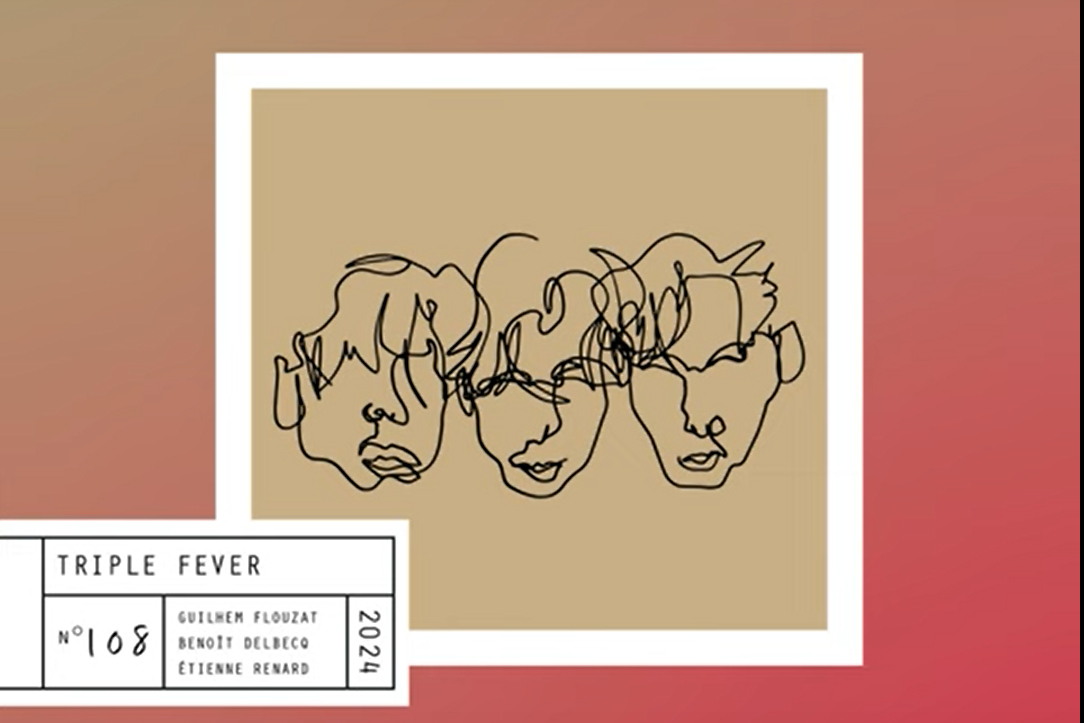Review: Nduduzo Makhathini’s ‘Modes of Communication: Letters from the Underworlds’
|
Getting your Trinity Audio player ready...
|
Due to the nation’s rich jazz history, it may appear surprising that a 2020 release – Nduduzo Makhathini’s Modes of Communication: Letters from the Underworlds (Blue Note Records, 2020) – is long-standing labels’ first by a South African musician. While the pianist will receive much coverage based on this fact alone, that singular focus improperly distracts from the album’s enormous efforts in eroding the historical separation between American and Cape jazz.
To some degree, both scenes can be viewed as originating from the African warrior code, under which songs played a central role in motivating and healing. In one, the music was significantly in response to Jim Crow, while in the other it was largely to apartheid. During the 1950s, musical ideas flowed fairly freely between the two countries. One of the most famous of Cape Town’s bands, the Jazz Epistles, became famous in part due to their ability to mix the township sounds of their homeland with the ideas of Gillespie, Parker, and Monk. By the turn of the next decade, this changed drastically.
In March of 1960, the South African government imposed strict censorship laws following the Sharpeville massacre where police officers killed sixty-nine civilians protesting severe restrictions on the ability of Black citizens to travel. These new rules dealt a hefty blow to jazz, shuttering all integrated venues and events and outlawing gatherings of more than ten people. Many artists fled elsewhere and a sonic wall formed between the nation and the United States. With the rise of Mandela’s new regime in the 1990s, this barrier began to dissolve. At times, however, the repair seemingly came at the expense of tradition as many young performers abandoned the sounds of before to focus more on adopting American influences. Even so, as exhibited by the fact Makhathini has several impressive prior releases that have not yet gained significant attention in the United States, some partition remains.
Born in 1982, Makhathini grew up under both the old system and the new. It would have been easy for him to focus primarily on either the sounds of his sonic forebears or those of his contemporaries at the exclusion of the other. Instead, on Modes, he chooses to combine the two. The meeting of the past and present is evident in its overarching theme, that of communication between “the ancestral realms” and the current time.
The synthesis of eras, however, is most notable musically. As to the Mzansi old guard, “Indawu” shares the spirituality and meditativeness of his teacher, Bheki Mseleku, who, appropriately enough given the album’s title, believed in a musical afterlife. Similarly, “Saziwa Nguwe” exudes the joy and warmth of a young Abdullah Ibrahim. As to modernity, “Beneath the Earth” strongly reflects the contemplative etherealness of Moses Molelekwa.
Additionally, the music is in many ways culturally diverse. Most of the band’s members are those at the forefront of Cape Town’s current jazz scene – the bandleader himself, tenor saxophonist Linda Sikhakhane, trumpeter Ndabo Zulu, drummer Ayanda Sikade, bassist Zwelakhe-Duma Bell Le Pere, and several vocalists including Gontse Makhene, MXO, Msaki, and the bandleader’s family including his wife Omagugu and daughter Nailah. However, the American voice of Logan Richardson on alto sax is also an integral part of the group. Similarly, each of the original compositions derives their titles from three – Zulu, Xhosa, and English – of South Africa’s eleven official languages, further underscoring cultural diversity.
Like many of his colleagues, Makhathini also draws significantly from American jazz. This is particularly the case with the music of McCoy Tyner, crediting the masterwork, A Love Supreme (Impulse!, 1965) with providing him the ability to understand his voice as a pianist.* This influence is readily apparent on “Umlotha” and “Unyazi” which each present the monumental propulsiveness of Coltrane’s quartet. Although featuring completely different instrumentation, “Isithunywa” sounds oddly reminiscent of the eternally beautiful original version of “Naima” from Giant Steps (Atlantic Records, 1960). The nearness is particularly striking given Tyner isn’t even on that album.
The above may make it seem as though each piece is focused solely on a specific style. In reality, while some approaches are more prominent in any given composition, all of them are melded into one throughout. This is particularly the case on “Shine”, a showcase for saxophonist Linda Sikhakhane. The song is undeniably soulful but otherwise delightfully difficult to categorize, calling upon R&B and, arguably, even New York’s 1970’s loft scene. It is arguably the greatest on the album and, although still early, likely to one of the finest tracks released this year.
Throughout, Modes of Communication: Letters from the Underworlds adopts the African warrior code’s view of music as a great healer to convalesce divisions of time and place, in many ways transcending both. In the process, it creates a new artistic form, one simultaneously reverent of the past and reflective of the present and future. It is a fantastic work that should sit proudly within Blue Note’s illustrious discography.
Tracklist: 1. Yehlisan’uMoya; 2. Saziwa Nguwe; 3. Beneath The Earth; 4. Unyazi; 5. Isithunywa; 6. Umlotha; 7. Shine; 8. On The Other Side; 9. Umyalez’oPhuthumayo; 10. Indawu; 11. Emaphusheni
Personnel: Nduduzo Makhathini (piano (1-11), voice (3,4)), Linda Sikhakhane (tenor sax (1-11), Ayanda Sikade (drums (1-11)), Zwelakhe-Duma Bell La Pere (bass (1-11)), Logan Richardson (alto sax (1-6, 8-11)), Ndabo Zulu (trumpet (1-6, 8-11)), Gontse Makhene (percussion (1,3,4,6,9), backing vocals (4)), Omagugu Makhathini (voice (1,8), background vocals (3,10)), backing vocals (4)), Nailah Makhathini (backing vocals (3,10)), Asanda Msaki (voice (3)), Thingo Makhathini (backing vocals (3)), MXO (voice (11)).
* As a fascinating aside, Makhathini’s mentor Mseleku once owned the mouthpiece Coltrane used on A Love Supreme. It was gifted to him by the saxophonist’s widow, Alice Coltrane, herself a groundbreaking artist, at the 1977 Newport Jazz Festival New York. Unfortunately, it was stolen from him in 1994.



